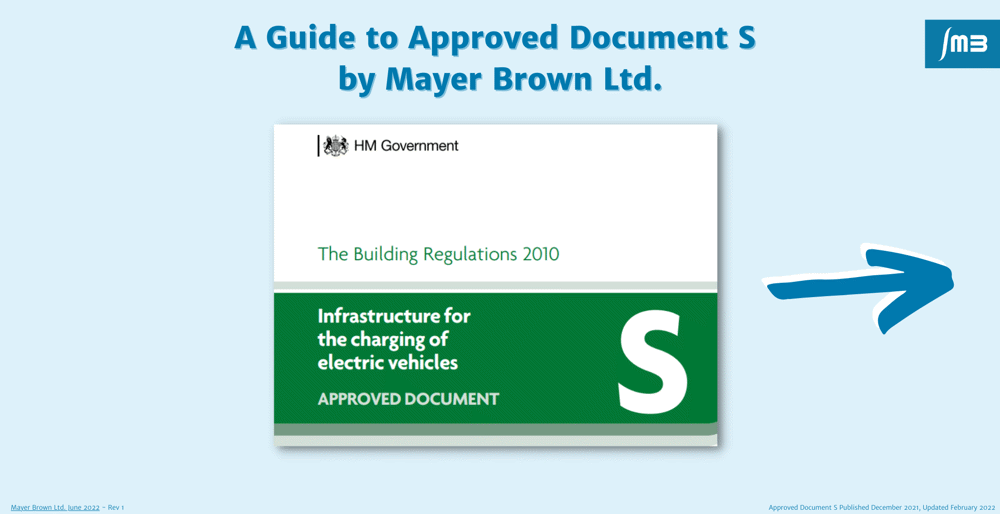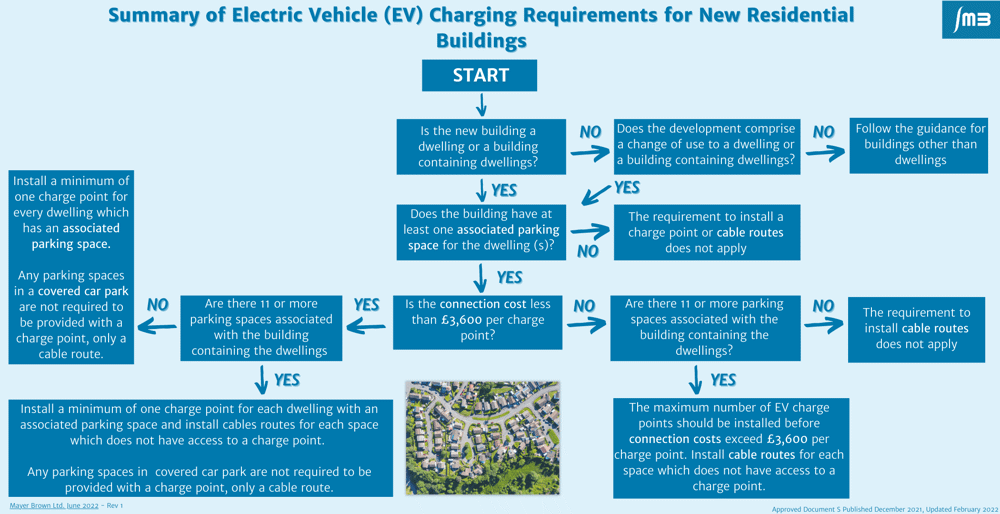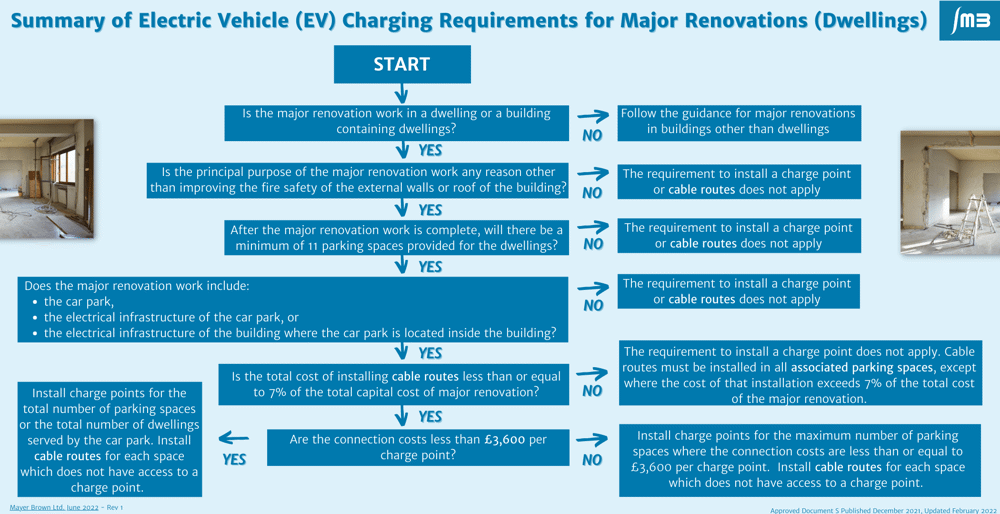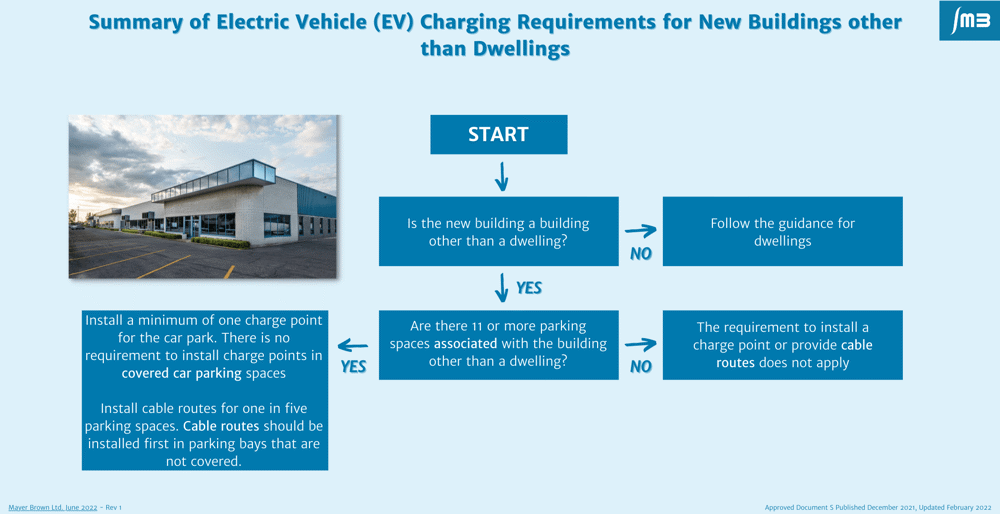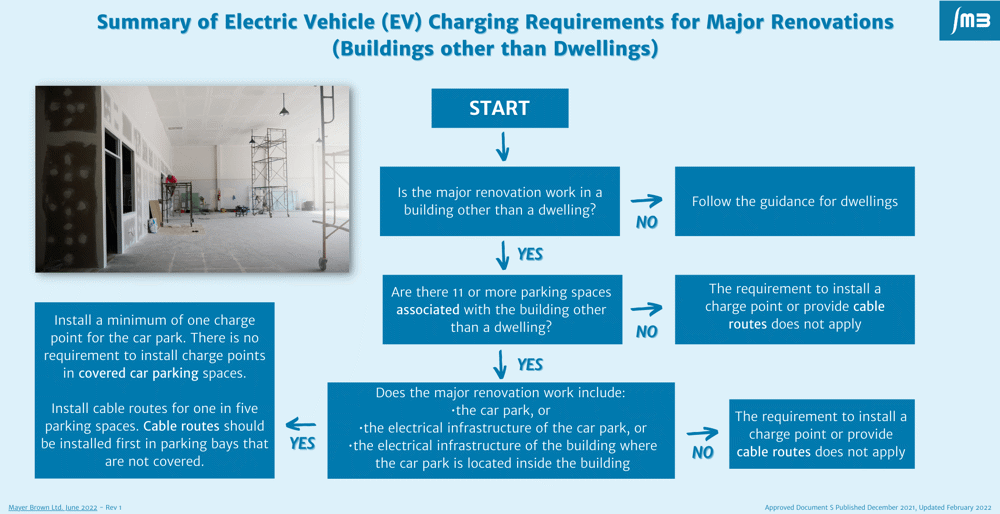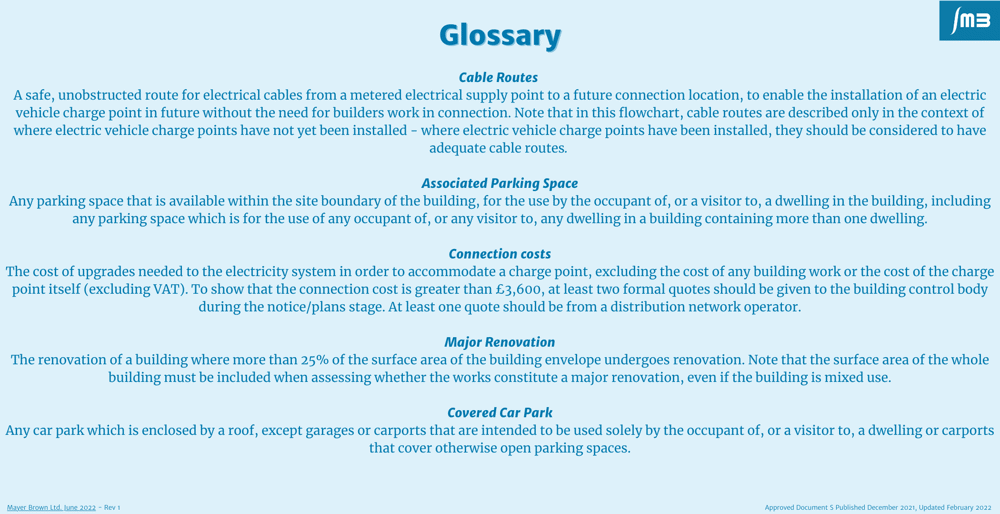Building Regulations – Infrastructure for the charging of electric vehicles – Approved Document S, 2021 Edition What is changing?
From 15th June 2022, the Building Regulations Approved Document S, “Infrastructure for the charging of electric vehicles,” takes effect and will mandate charge point infrastructure in new homes, new non-residential buildings, and when some buildings are renovated. The regulations will require:
- Every new home with associated parking within the site boundary is to have an electric vehicle charge point. This includes homes created from a change of use.
- This includes any Residential buildings undergoing major renovation, which will have more than 10 parking spaces within the site boundary after the renovation is complete. They must have at least one electric vehicle charge point for each dwelling with associated parking within the site boundary. There must also be cable routes in all spaces without charge points.
- All new non-residential buildings, with more than 10 parking spaces within the site boundary of the building, to have a minimum of one charge point. In addition to this, there needs to be cable routes for one in five of the total number of spaces.
- All non-residential buildings, undergoing a major renovation, which will have more than 10 parking spaces within the site boundary after the renovation is complete, to have a minimum of one charge point and in addition to this, cable routes for one in five spaces.
What is the definition of a major renovation?
The definition of major renovation is the renovation of a building where more than 25% of the surface area of the building envelope undergoes renovation. The total cost of installing the enabling infrastructure should not exceed 7% of the total cost of the major renovation of the building.
When do you need to install Electric Vehicle Charging points?
If installation costs exceed 7% of the total cost of the major renovation, the residential building is exempt from the requirement to install any electric vehicle charge point. However, cable routes for electric vehicle charge points must be installed in all associated parking spaces, except where the cost of that installation exceeds 7% of the total cost of the major renovation.
Electric Vehicle Charging point costs
The average connection cost for each electric vehicle (EV) charge point connection is capped at £3,600. Where the connection cost is greater than £3,600 per EV charge point connection, the maximum number of EV charge points should be installed before connection costs exceed £3,600 per EV charge point connection. To show that the connection cost is greater than £3,600 at least two formal quotes should be given to the building control body during the notice/plans stage.
Electric Vehicle Charging point power usage
Each EV charge point should have a minimum nominal rated output of 7kW and be a minimum of a Mode 3 specialised system for electric vehicle charging.
For further information have a look at our summary guide below, or please contact Chris Slack at cslack@mayerbrown.co.uk. For any other enquiries please, fill out our form and we’ll assist you.
Take a look at other blogs for similar content and keep up to date with Mayer Brown LTD with our news page.

